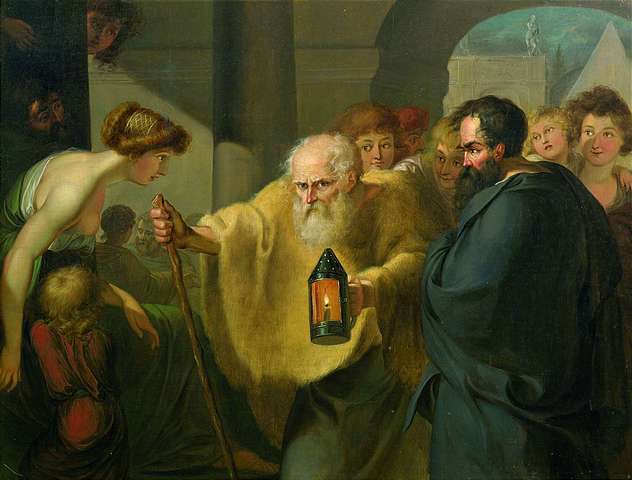It’s about one month into the second quarter of the Certificate in Private Investigation program at the University of Washington, and we’re finally addressing the topic of uncovering the truth. Here’s a brief recap of what we learned in the first quarter (called Private Investigation & the Law) with respect to law and order:
- The truth has no bearing on a trial. The burden of proof is on the prosecution to prove the elements of its case beyond a reasonable doubt. The job of the defense is to cast doubt on one or more of those elements, and thus compel a jury to render a verdict of Not Guilty.
- The defendant’s job is to let his or her attorney do their job. The “what really happened” story is of no consequence and could very well remain a mystery during a trial and long after it ends.
- The police investigate crimes on behalf of the prosecution. They stop investigating when they think they’ve found what they were looking for.
- Private investigators, if they’re involved at all, typically work for the defense.
So whose job is it to uncover the truth?

You could argue that it’s the job of the private investigator. Private investigators tend to pick up where the police leave off. An example I often use to illustrate the role of the PI is this: let’s say the police stumble upon the body of a man with a bullet hole in his forehead. It would be easy to conclude that he died of the gunshot wound. So off they go in search of a smoking gun. And when they find one, case closed. Open and shut case, right?
Not so fast! What if the medical examiner later determines that the victim actually died of poisoning and the gunshot covered up that fact? If the defense attorney had in inkling that his client shot a dead man, he would have already dispatched a private investigator to collect evidence that his client is not guilty (which, by the way, is not the same as saying he’s innocent). If the PI is skilled enough or lucky enough (after all, by this time, the crime scene is most likely hopelessly contaminated) to find the poison that killed the shooting victim, it could throw the prosecution’s entire case into question.
In this second quarter (called Criminal Investigation & Investigative Techniques) of the PI program, we’re learning that the PI’s job is to find every fact that can be found and turn it over to the defense. End of story. But is it a satisfying story? Our instructor stressed from our first class that a critical trait of a successful PI is to withhold judgment about whodunit. Our job is to keep our eyes and ears open, get a clear accounting of exactly what happened and when (using the riveting investigative techniques she’s teaching us), and resist trying to reach a conclusion. The minute we head down that slippery slope, we’ve introduced bias into the process. Fitting together the puzzle pieces is the defense attorney’s job. And once we turn over the evidence to him or her, we wash our hands of the case and move onto the next one.
So again, whose job is it to uncover the truth? The answer, as counterintuitive as it may sound, is: no one’s. Which is why writing stories about an amateur sleuth is so deeply satisfying.
I recently shared the outline for my next novel, set in Lyon, with my editor. Lyon is a stunningly pretty city whose sizable Old Town is a UNESCO World Heritage Site. In fact, I’m told that Vieux Lyon is the world’s largest Renaissance quarter after Florence, Italy. You can practically feel the shroud of history settle on your shoulders as you wind through its uneven streets and dark alleys, and at night it’s easy to imagine a sinister individual lurking just beyond the light of a street lamp.

When I told my editor that my plan is to incorporate the tone of the Old Town into the mystery that my amateur sleuth will become embroiled in, she advised me to infuse lightness into the story. So Maxime Martin, my protagonist, will be the light that chases away the shadows of lies and cover-ups.
Which called to mind ancient Greek philosopher Diogenes, who abandoned the life of a banker to make his living as a beggar, slept in a wine barrel, and carried a lamp to light his way to an honest man. Exactly why he was looking for an honest man isn’t clear. (Some claim he was mad, others claim he was trying to prove that good manners are a disguise for dishonest living, and still others claim that the quote attributed to him was mistakenly translated and that he was “looking for a human.”) Whatever the answer, the image of Diogenes is the closest parallel I’ve found to an amateur sleuth. Far be it for me to answer the question, “Why is the truth important?” (beyond the simple fact that humans are meaning-making machines). But I can tell you that if, like me, you’re frustrated by the sober reality that it’s no one’s job in our justice system to uncover the truth, then there are hours upon hours of satisfaction to be found in reading about a protagonist who volunteers for that job.
Thanks this week go to Denise Scaffidi, my instructor this quarter at the UW, who is unknowingly equipping my protagonist with the critical tools he’ll need to find a killer in Lyon. Which leaves just one thing he’ll need to provide: his own lamp.

